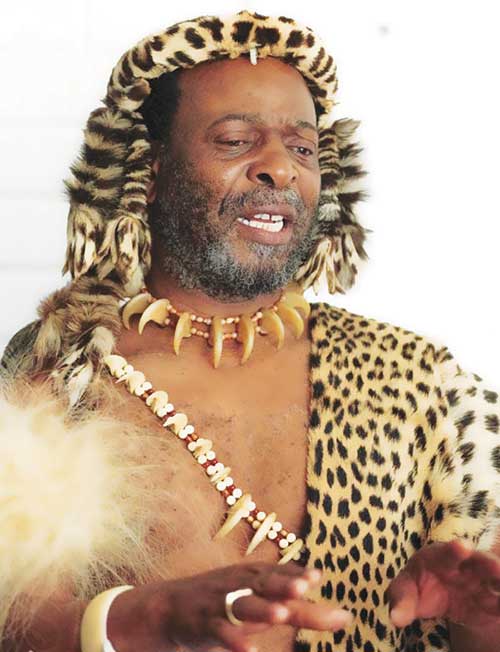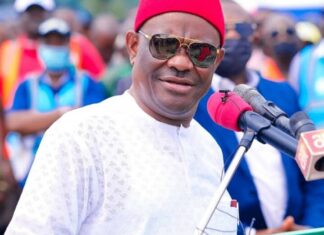During the apartheid era when Nelson Mandela was jailed for almost 30 years, the whole of Africa, with Nigeria maintaining its ‘big brother’ status, rallied round to campaign against racism. Once Pieter Botha and co yielded to agitations and left, the orphan bared his ‘fangs’ against those that saved him, writes Senior Correspondent, VICTOR EBIMOMI.
 “I do not, for a moment, entertain the idea of Africans turning into race oppressors. The Master race concept is not ours.”
“I do not, for a moment, entertain the idea of Africans turning into race oppressors. The Master race concept is not ours.”
The above excerpt is contained on page 172 of Let My People Go, the autobiography of South African activist and Nobel Prize (Peace) winner, Albert Luthuli, a Zulu.
With the recent xenophobic attacks in South Africa, the likes of Luthuli and Nelson Mandela must be wailing in their graves.
For decades, precisely since 1948, South African blacks were faced with apartheid, a notorious segregation policy that not only dehumanised them, but significantly abridged their fundamental human rights across the board. They struggled in different ways, including with arms, to liberate themselves from the minority whites, to no avail.
In April 1994, however, they got the much needed freedom, as the first black man in the person of Dr. Nelson Mandela became the president of the country. While the struggle lasted, many African countries contributed in various ways. And Nigeria, the most populous black nation on earth, is believed to have gone a step higher than others. Apart from financial and other contributions to the mainstream group, the African National Congress (ANC), Nigeria consistently, at every forum drew world attention to the evil of apartheid and even went ahead to either isolate or punish some countries known to be supportive of it. One of the most significant steps taken under this period was the nationalisation of the companies belonging to some of the supporting or sympathetic countries. British Petroleum (BP), for instance, was changed to African Petroleum (AP). Nigeria’s foreign policy, which makes Africa its centrepiece, was hailed across the globe. Most South Africans were also offered scholarships in Nigerian universities
But in the past few years, it appears Nigeria’s efforts have suddenly gone by the wind – unappreciated. The event of the past few weeks where black South Africa unleashed a xenophobic venom on other African migrants – killing and maiming them as well as destroying their property – seems to lend credence to this. In the orgy of violence allegedly triggered by the speech of Zulu King, Goodwill Zwelithini (though the monarch has denied, claiming to have been misquoted), many Nigerians could not count their losses. About 25,000 Nigerians are estimated to be living in South Africa.
According to reports, on Sunday, April 19, Nigerians in that country have lost property worth millions of naira, apart from physical assault and injury.
Nigerian Consul-General to South Africa, Ambassador Uche Ajulu-Okeke, said Nigerians had lost more than N21 million to the attacks that started from the port city of Durban. The loss, she explained, included looted shops, burnt shops, two burnt mechanic workshops, 11 burnt cars and two stolen cars, among others.
“Nigerians have compiled the cost of the damage to their property and it is totalling about 1.2 million Rand or N21 million, which will be sent to the Federal Government for further action,” the envoy said.
She added that two of the three Nigerians who were wounded during the attacks in Durban had been treated and discharged from the hospital, stressing that she would still continue to assess the situation on the ground.
Although more than 300 people have been arrested over the incident, while the government of President Jacob Zuma has condemned it, promising drastic action including deployment of soldiers to tame the ‘wild guys’, there have been a torrent of reactions from Nigerians back home denouncing the action. But beyond denunciation, they equally demand very tough action against South African government, claiming that what is happening in the country is tantamount to paying evil for good.
Besides, they maintained that the premise on which the violent youths went on rampage was not tenable, as there are several South African companies making so much money in Nigeria at the detriment of indigenous companies. The companies, they said, equally employ a significant number of South Africans in place of Nigerians.
In fact, last on Monday, April 20 hundreds of Nigerians took to the streets in parts of the country to register their grievances. They visited the South African embassy in Abuja and some companies belonging to South Africans such as MTN, Multichoice, Shoprite among others.
In some cases, for instance in Benin City, some youth protesters under the aegis of The Flagship, threatened to shut down South African firms operating in Nigeria over the attack on Nigerians in South Africa. The protesters, who carried placards with various inscriptions such as “Xenophobia is inhuman”, “Zuma, call your boys to order” and “S/Africans can’t be making money from us, killing us”, warned that enough is enough.
Austin Enabulele, spokesperson for the group, explained that the protest was a warning to the South African government to put a stop to the attacks on Nigerians or risk losing its investments in Nigeria.
“We are all Africans; we wonder why they should attack our fellow Nigerians who are doing their legitimate businesses in South Africa, when we have shown them love to operate in Nigeria.
“We have come here to say to (President Jacob) Zuma to call his people to order because if he fails to call them to order, we will do the needful. We are aware of all their businesses in Nigeria; we know of MTN, we know of Shoprite, we know of Multichoice, and we know of all the other companies that belong to South Africa.
“We will shut down all their services, if they continue the killing of our brothers and sisters. So, we have come here to tell them to put an end to the killing of our brothers and sisters who are doing their legitimate jobs in South Africa,” he said.
Gloria Noren, the vice president of the group, added: “Nigeria spent over N60 billion fighting apartheid for them. Why should we extend love to them and they extend hatred to us. It is totally inhuman, distasteful and disgusting.
“We are sending this message to our Nigerian government to go ahead and evacuate all Nigerians from South Africa because we cannot continue to lose our brethren.”
Former House of Representatives member for Badagry, Oladele Kosoko, also condemned the act, telling the youths to channel their grievances to the government authority rather than on innocent foreigners.
His words: “It is condemnable, and Nigeria should pay them back immediately. We have every right to go anywhere and establish ourselves. If the citizens of South Africa are not qualified to get what foreigners are getting, their government should address the issue. Killing our people doesn’t make sense. We too should retaliate.”
Several organisations have also joined in condemning the violence in South Africa, even calling on government to take legal action against the country. For instance, Socio-Economic Rights and Accountability Project (SERAP) said President Goodluck Jonathan should urgently drag the South Africa government before the African Commission on Human and Peoples Rights to seek effective remedies, including adequate compensation for the victims.
The group Executive Director, Adetokunbo Mumuni, said the attack clearly violates the obligation of South Africa under the African Charter on Human and Peoples’ Rights and urged “decisive action from our government”.
Despite the uproar, however, the Nigerian government has promised compensation for the victims of the attacks.
Minister of State for External Affairs, Musiliu Obanikoro, said Nigeria’s Acting High Commissioner to South Africa, Martin Cobham, and others were already taking stock of damages incurred by Nigerians to ensure that “adequate compensation would be given to them”.
Meanwhile the federal government has called on South African authorities to punish perpetrators of the xenophobic attacks in their country, just as it has called for compensation for the victims.
Even, the Senate on Wednesday, April called on the federal government to take Zwelithini to the International Criminal Court (ICC) over the deadly attacks.
So far, because of the incident, South Africa has closed its consulate office in Lagos.
How far this attack will go in changing the diplomatic relations between the two countries, analyst say, will definitely be a breaking point to either cement the relationship or sour it.














